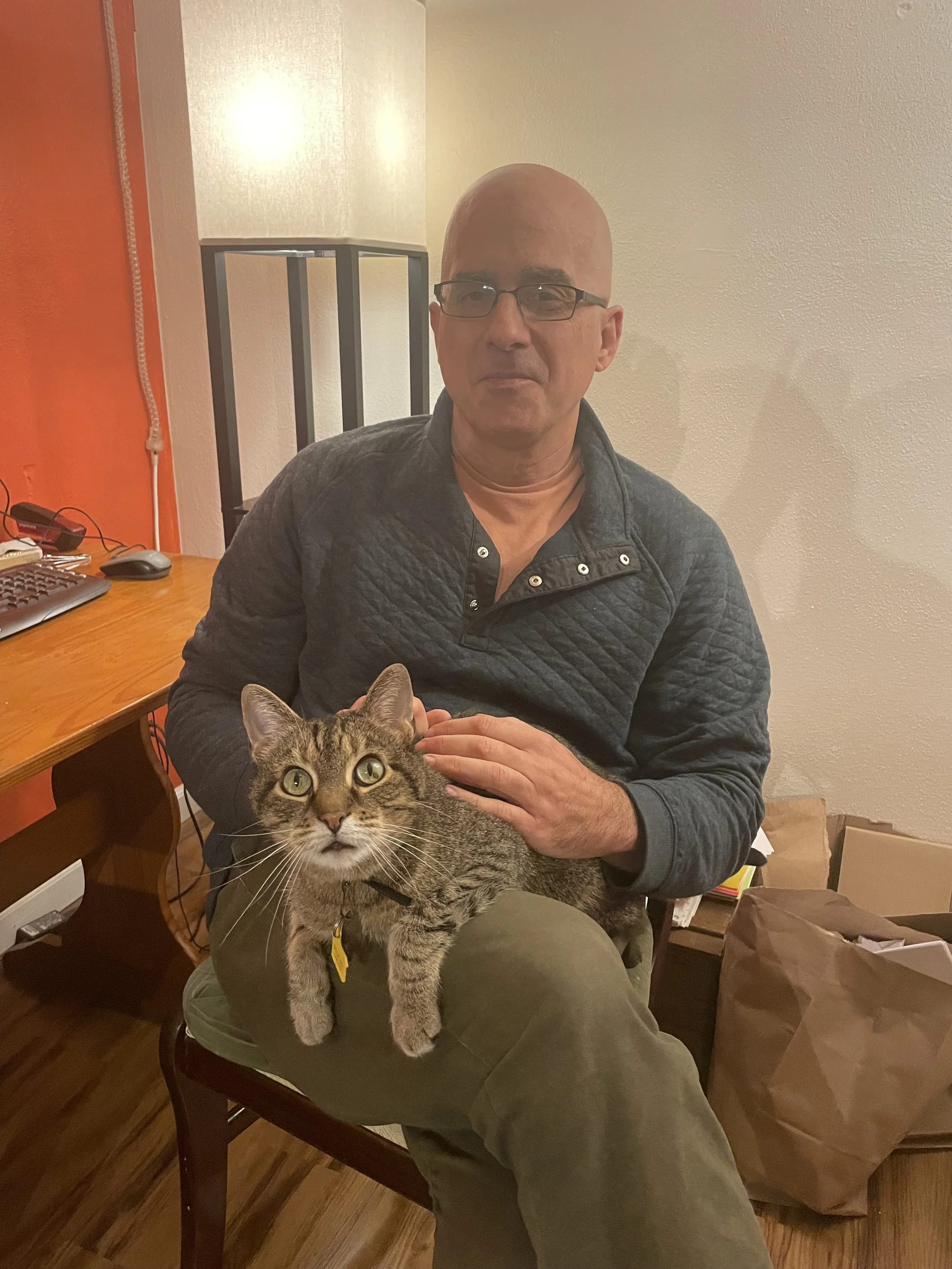Componere
By Richard Stimac
The dead we loved do not live within us, as if were abandoned frames
with broken panes of glass and splintered clapboard shingles
that fluttered in strong winds until they peeled like sunburnt skin.
We are not the smoothed granite of mortice and tenon crypt walls,
or battlefields with adjoining graves, or asylums, hospitals, or orphan homes.
Our bodies are not the places where the dead choose to dwell,
with our sticky arteries and arthritic vertebrae that creak like uneven floorboards.
Only those lost, or who want to be lost, sleep in ramshackle huts.
Even if we light candles before icon-like images set on a living room shelf,
or leave our oblationary tears on the grass that surrounds their gravestones,
or page through a photo album and recollect from a faint image
that one Sunday, at the park, when it rained, and something
happened, but what, something, or the trip out of town with things
gone all wrong, but we were happy then, or those singular traits
we hated, but now that the other is dead, and we, alone, we long for them.
What have the dead left of themselves for us but ash and spectral memory?
Imagine that each of us is our own earth, with our own molten core, with seas
that rise and fall by the thaw and freeze of ice, distinct fauna, flora,
eons, eras, periods, epochs. If you know your science, you know the dead
are the stuff of our own bodies: the calcium in our bones; the iron
in our blood; the oxygen that gives us mass; the carbon that gives us form.
The dead do not sleep in us, but they are in us, their decomposed selves.
Imagine if we mine the veins that striate our tissues, or drill blast holes in our bones,
or crater the flat surface of our skin, as if we were contractors in search
of rare substances demanded by our insatiable needs. We extract our desire handful
by handful from the pit of our stomach and the bowels of our loins.
We seperate and process and crush and grind the dead who make us whole.
Our wills are machines engineered to move our thoughts from then
to now. When we study ourselves or study our past, both being equal, we find
that we are always one step behind ourselves. The present moment
is that last mortgage payment coupon that reappears the next month, untorn,
the perforation intact, the free-and-clear deed always one installment away.
No, the dead do not rest within us, nor do we arise in the dead. They and we are
one, as the past, present, and future unite into the abstraction called time.
Think of a house, in the middle of the Midwest plains, wood frame, timber from Maine,
asphalt roofing from Michigan, lead pipes from St. Louis, all delivered
by box car, care of Sears & Roebuck. Then the stove flue creosote catches fire.
Days later, the family sifts through the warm embers for the remnants of their lives.
That house will rot, as we will. The untreated wood will degrade into humus.
Somewhere, something, someone, will absorb those remains and live.
****
Richard Stimac has published a poetry book Bricolage (Spartan Press), two poetry chapbooks, and one flash fiction chapbook. In his work, Richard explores time and memory through the landscape and humanscape of the St. Louis region. He invites you to follow his poetry Facebook page: “Richard Stimac poet”.

